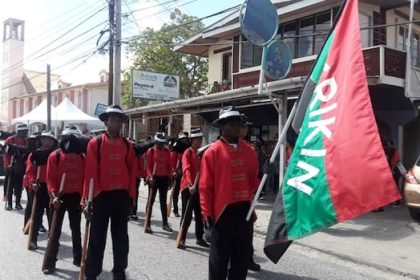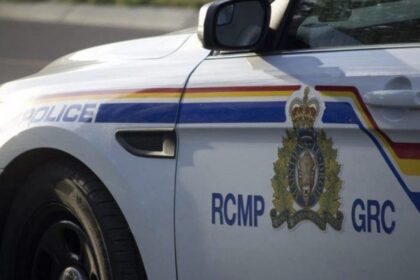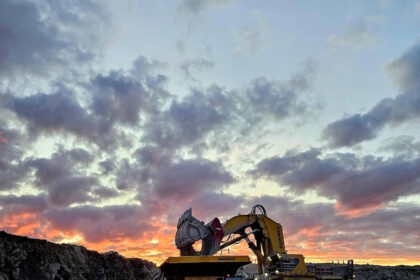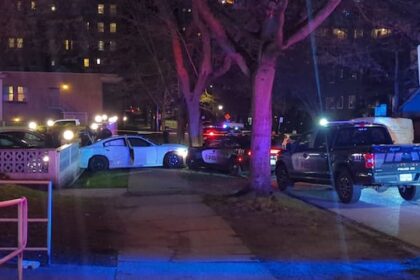Manitoba·NewOn the eve of the first officially-recognized Indigenous Veterans Day in Manitoba, there’s a lot of progress to celebrate, says a member of the Southern Chiefs’ Organization.1st observed in Winnipeg in 1993 and Manitoba in 1994, now recognized across CanadaDarren Bernhardt · CBC News · Posted: Nov 07, 2025 1:22 PM EST | Last Updated: 8 minutes agoListen to this articleEstimated 6 minutesThe audio version of this article is generated by text-to-speech, a technology based on artificial intelligence.Justin Woodcock, a veteran who served in the Canadian Armed Forces, says First Nations soldiers today feel a lot more comfortable embracing and sharing their culture and identity, than he did when he first joined the Armed Forces back in 2009. (Jeff Stapleton/CBC)On the eve of the first officially recognized Indigenous Veterans Day in Manitoba, there’s a lot of progress to celebrate, says a member of the Southern Chiefs’ Organization.”I can only speak for myself, but I think on the general, we see a lot more positivity and a lot more hopeful messaging. I’m really excited about how far we’ve come and I’m excited to see where we go,” said Justin Woodcock, who manages SCO’s First Nations veterans program.Saturday marks Indigenous Veteran’s Day across Canada, honoring the thousands of First Nations, Métis and Inuit who have served and continue to serve in the Canadian Armed Forces.The eighth day of November has been acknowledged, in some way or another, for more than three decades, but it was never enshrined in legislation in Manitoba until now. On Thursday night, the province gave royal assent to Bill 210, the Indigenous Veterans Day Act”What a beautiful way to start today,” Woodcock said in an interview Friday with CBC Manitoba Information Radio host Marcy Markusa.”The day has a lot of history, and I’m so excited to know that moving forward it’s cemented and we don’t have to worry about it [getting] recognized every year anymore.”It was first observed in Winnipeg in 1993 after veterans, determined to establish a separate day to honour their service, held an event that had been prompted by an incident in 1991 at the National Remembrance Day service in Ottawa.On Nov. 11, 1991, a group of Kanien’kehaka (Mohawk) veterans tried to place a wreath during the ceremony but were refused. They were also prohibited from laying wreaths at cenotaphs or entering Legion halls to celebrate with fellow soldiers.Sgt. Tommy Prince, middle, was a hero of both the Second World War and the Korean War. (PPCLI Museum and Archives in Calgary)Systemic discrimination against Indigenous veterans began as soon as they returned home from service, with many being denied the same recognition and benefits as their non-Indigenous comrades.”It’s shocking to think about. These are World War II veterans, Korean War veterans, folks that have put their lives on the line for freedom, for Canada, and for them not to be able to participate in a day meant to honour them, it’s a travesty,” Woodcock said.”So they came together, they organized, they said if we’re not going to be able to participate in this day, we’ll make our own.”Following Winnipeg, Manitoba recognized what was then called Aboriginal Veterans Day in 1994. It wasn’t until the following year — 50 years after the end of the Second World War — that Indigenous veterans were officially allowed to participate in the National War Memorial ceremonies. However, Indigenous Veterans Day continued and now is recognized with special events around the country on Nov. 8.”A big part of the day for me is to honour that unique history,” said Woodcock, who’s from Opaskwayak Cree Nation and served eight years with the armed forces — five in the army and three in the navy.”I’m glad that things have since changed, but I think it’s important that folks know that unique history.”And, he added, to celebrate the progress at the same time, citing the recent apology from the Canadian Armed Forces for how Indigenous soldiers were treated.”Myself and a lot of other First Nation veterans watched that and it was really meaningful for me. It’s efforts like that that are moving things forward towards reconciliation and healing,” he said, also noting this is the first year that currently serving armed forces members can wear a beaded poppy on their uniform.More locally, he highlighted the gains at 17 Wing, Canadian Forces Base Winnipeg. In 2022, the once-named Community Chapel was rededicated as the Spiritual Well-Being Centre for the diversity of those who serve.”I work closely with the base here in Winnipeg, 17 Wing, and it just warms my heart to see what’s going on on that base,” Woodcock said.And since 2017 the base has had a sweat lodge that is open to all members.”To be able to bring those two pieces of their identity — their military background and also their First Nation culture — to celebrate that on base shows how far we’ve come,” Woodcock said.“When I was serving, I struggled with my own identity sometimes and didn’t always feel safe to show who I was. So now when I see initiatives like that being fully embraced by the command at 17 Wing, it just really warms my heart.”To honour Indigenous veterans and the official recognition of their day in the province, Indigenous Veterans Manitoba is holding their first annual veteran pow wow at Sergeant Tommy Prince Place (90 Sinclair St.), on Saturday at 1 p.m.The facility, formerly the North Centennial Recreation and Leisure Facility, was renamed in 2027 in honour of the Anishinaabe war hero from Brokenhead Ojibway Nation north of Winnipeg.Prince is one of the most decorated soldiers in Canada’s history.”We’re going to have our own way to celebrate each other,” Woodcock said about the powwow. “I’m really excited and I hope to see a lot of people there. Everyone’s welcome.”There’s also an Aboriginal Veteran’s Day powwow at the Keeshkeemaquah Conference and Gaming Centre in Long Plain, southwest of Portage la Prairie, while the Red River Métis Veterans Department of the Manitoba Métis Federation is holding an event at the Royal Canadian Legion in Lac du Bonnet.While he’ll be celebrating the special events on Saturday, Woodcock says his thoughts will be with those who paved the way.”I’ll be thinking about that group of veterans that went to the National Monument in 1991 and were turned away. And I hope that they’re finding peace and healing now.”ABOUT THE AUTHORDarren Bernhardt has been with CBC Manitoba since 2009 and specializes in offbeat and local history stories. He is the author of two bestselling books: The Lesser Known: A History of Oddities from the Heart of the Continent, and Prairie Oddities: Punkinhead, Peculiar Gravity and More Lesser Known Histories.
Friday, 6 Feb 2026
Canada – The Illusion
Search
Have an existing account?
Sign In
© 2022 Foxiz News Network. Ruby Design Company. All Rights Reserved.
You May also Like
- More News:
- history
- Standing Bear Network
- John Gonzalez
- ᐊᔭᐦᑊ ayahp — It happened
- Creation
- Beneath the Water
- Olympic gold medal
- Jim Thorpe
- type O blood
- the bringer of life
- Raven
- Wás’agi
- NoiseCat
- 'Sugarcane'
- The rivers still sing
- ᑲᓂᐸᐏᐟ ᒪᐢᑿ
- ᐅᑳᐤ okâw — We remember
- ᐊᓂᓈᐯᐃᐧᐣ aninâpêwin — Truth
- This is what it means to be human.
- Nokoma











